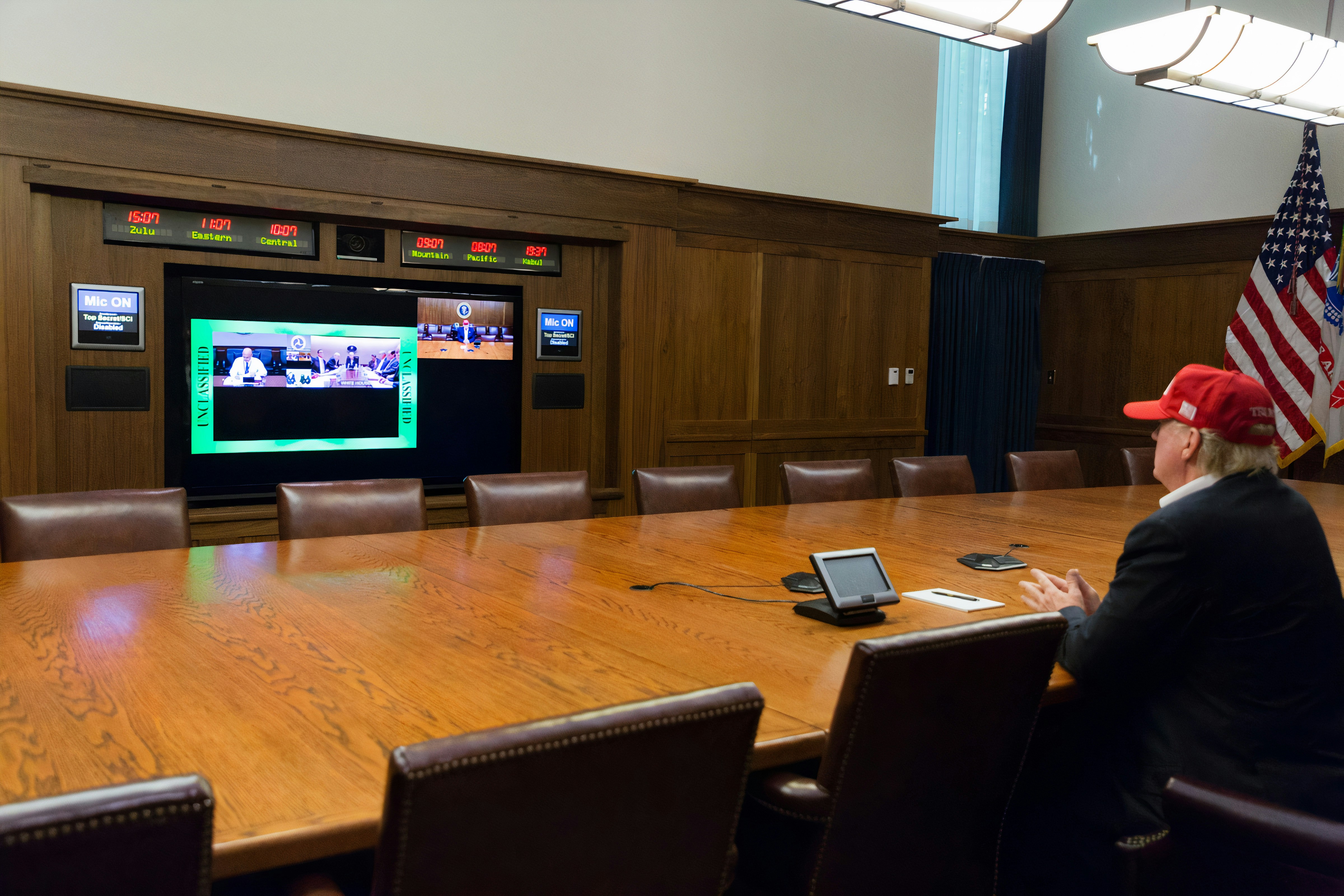
Image - History in HD
This article was originally published on Jun 11, 2025.
As I write this, every mainstream media outlet is enthralled with the rapidly decaying relationship between President Donald Trump and his former DOGE chief, and best mate, Elon Musk. The bombardment of tweets back and forth between them has been jaw-dropping to watch and marks another chapter in the chaotic Presidency of Donald J. Trump. Similar moments, such as his explosive row with President Zelensky, or his retreats on tariffs, have largely been reported on in a way that focusses on Trump’s individual character flaws and personality as the key driver behind the administration. This has particularly been the case with commentary on Trump’s foreign policy.
Common lines include how other world leaders must act tough against Trump since he admires strength, how he loves to be flattered, and his deep insecurities. This has created a narrative that America’s foreign policy is deeply personalised and sensitive to the intricacies and complex character of the President, rather than deeper political calculation and logical thinking. So, when he exits the White House in 2029, assuming the constitution works as it should, will his more protectionist, NATO hostile and expansionist approach move with him? The personalised narrative that has been established would suggest that perhaps this would be the case, since a different administration would not have the personal characteristics of Trump driving it.
However, Trumpism is far bigger than one man. It is easy to become distracted by the central personality. Underneath his grand performances, there is a political calculation and logic that drives the type of politics Trump supports and how America should act on the world stage. And this is something that will influence both Democrats and Republicans if they want to win the White House.
Take America’s role as a security guarantor for Europe as an example. At a point where Americans are feeling the financial squeeze of inflation and the economy, there is a logic in cutting back America’s hefty financial commitments to overseas countries security to focus more on their priorities at home. America is by far the largest financial contributor towards NATO, while other countries repeatedly fail to meet the 2% spending target. Trump’s actions, no matter how divisive and inflammatory, have certainly given NATO members a sharp, painful shock to wake them up into being more independent on their national defences. The chance of some future US administration, red or blue, deciding to revert towards the status-quo and have America provide the bulk of NATO’s power would be profoundly costly and unpopular domestically. As a result, once Trump has established a new status-quo regarding NATO, it became incredibly politically difficult to attempt to reverse course.
The Trump administration, despite it's less that 6-month tenure, has also exposed a fragility in the US relationship with its international allies that will be profoundly damaging for decades to come. Trump has shown a level of brinksmanship that has shocked the world and the institutions that have defined it since 1945. This was most profoundly expressed by Vice-President JD Vance’s remarks at the Munich Security Conference in February that directly attacked the state of European democracy, shattering what had been longstanding ironclad support from the United States. One legacy of this will be a lasting doubt in the minds of European leaders regarding America’s long-term reliability as an ally. Even if a more favourable administration were to arrive, what would stop another Trump-like force from returning and reaping further damage? This would likely make Europe wary of returning to an over-reliance on America’s security guarantee. The consequence: American power and influence in many of these relationships has decreased and will stay that way for the foreseeable future.
On protectionism and tariffs, we can see internationally a wave of realisation that globalisation has had profound damage on communities and domestic economies in ways previously ignored. The Biden administration, despite its many differences, largely agreed with Trump on much of his tariff policy, even increasing them on Chinese electric vehicles and semiconductors as part of a desired process of onshoring manufacturing. The world is a more hostile place to globalisation now, and therefore it can be expected that any Democrat or Republican administration would follow the spirit of much what Trump has sought to accomplish with Liberation Day, imposing tariffs to protect and promote US manufacturing. This would be politically attractive in the current environment, with voters being more aware of the costs of globalisation and demanding a more active government policy in remedying many of its problems.
It should be noted that much of the chaos and absurdity of the second Trump presidency is not what I am discussing here. Things like the Tariffs on penguins, the inflammatory and ill-judged rhetoric, the bust ups in the Oval Office, much of this speaks to the personal character of Trump and his surrounding team, rather than the core political calculation that drives much of the administration. Any future Democratic administration would likely be more civil, less inflammatory in its rhetoric, and ultimately appear more toned down than Trump. But the reality is that Trump has truly shaken the system to its core, and many of the foreign policy changes are unlikely to be reversed. The actual actions of future administrations would likely speak of a government not wanting to return to an overly generous security guarantee, one that seeks to appeal to Trump’s post-industrial base, and tap into some of that America First energy that Trump has masterfully harnessed.